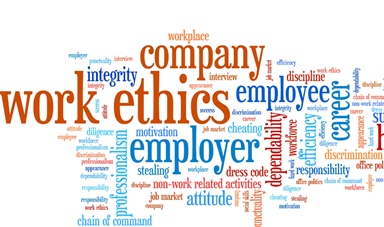Loading component...
At a glance
On rare occasions we hear people who have behaved with extraordinary courage and altruism in doing their jobs, describe their actions as ordinary, as part of fulfilling their role. “I am not a hero, I was just doing my job,” they say.
Unfortunately, more often we use the expression “I am just doing my job” as a way to excuse what we are doing at work. The reasons we say it are many, but generally they include an attempt to indicate to others, and even to ourselves, that there is a distance between ourselves and our work actions, and that this distance somehow diminishes our responsibility.
Our work roles, like other roles we have in life, impose certain expectations and responsibilities. To survive we tend to develop different “personalities”, which fulfil the expectations of the different roles.
This is in part due to the fragmentation of life, which is not new. Through the ages people have had work, families, friends and interests.
What some argue has changed now is that some parts of our life have developed values that are inconsistent with others. So we have to assume contradictory values in different roles.
For example, we may keep honesty and fairness for after work hours and weekends but we do not behave in accordance with those values during office hours.
Morality and the law agree that “doing my job” does not absolve me of responsibility for my actions. A horrific example is the case of Adolf Eichmann, who was responsible for transporting thousands of Jews to their deaths during World War II and was executed for his actions.
Recently, Bernie Madoff’s secretary said “I thought I was doing my job as I thought it should be done” before she was sentenced to six years in prison for her role in the fraud.
"Questioning goals or the way they are attained is not encouraged in many workplaces. People are asked to do their bit and not bother themselves with the big picture and the overall outcomes."
When people are called – implicitly or explicitly – to participate in activities that they would find unacceptable in a different context, they try to deal with this by pretending that they are detached from responsibility, by assigning the responsibility to their role and not to themselves, even if this is impossible.
Many employers and superiors also tend to prefer obedient skilled hands or minds rather than whole moral persons. Questioning goals or the way they are attained is not encouraged in many workplaces. People are asked to do their bit and not bother themselves with the big picture and the overall outcomes.
This is something that is possible with division of labour. It makes passing the buck easier from the perspective of each individual but it also makes organisations easier to manage but not necessarily more ethical.
The consequences of “just doing my job” are not positive for ourselves, our employer or society.
The excuse gives the illusion of not being responsible for what we do, when in fact we are morally and legally responsible for our actions. It also limits our contribution to our work role and diminishes our commitment and participation. So be aware if your people are telling you they are just doing their job, and don’t ever ask them to just do it.
Dr Eva Tsahuridu is CPA Australia's policy adviser, professional standards and governance.

